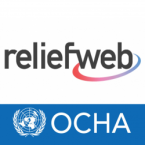ประกาศงานนี้หมดอายุแล้ว
Consultant to support strengthening demographic capacity and implementing inequality assessments for civil registration and vital statistics systems in Bangladesh
ที่องค์การสหประชาชาติObjectives
Implement an inequality assessment of CRVS system using secondary data
Strengthen demographic capacity in the National Statistical Office and other relevant line ministries in the National Statistical System
Expected Deliverables
Together with the national statistical office, inception workshop for all relevant stakeholders in the CRVS system
Mapping of secondary data sources and critical appraisal of their suitability for an inequality assessment
With the support of the international expert, analysis of data sources and involvement of stakeholders to produce a report on the inequality assessment of the CRVS system
With the support of the international expert and the national statistical office, prepare and implement two capacity building workshops on demographic skills and provide technical inputs to vital statistics production
With the support of the international expert and the national statistical office, prepare and implement a national closing workshop with the relevant stakeholders to present and disseminate the findings from the inequality assessment
Support the national statistical office and relevant national stakeholders prepare inputs for the two regional capacity building workshops and the regional closing workshop
Quarterly reports summarising days worked and outputs
Bangladesh
Expected durationThe payment will be based on the number of working days. Under this project, the consultant will
perform work for 50 days until 30 September 2022
10 February - 30 September 2022
A well-functioning civil registration and vital statistics (CRVS) system helps ensure that every person has a legal identity, facilitating access to the benefits and protections of the State. It is also the preferred data source for many demographic statistics with numerous indicators of the Sustainable Development Goals (SDGs) directly related to mortality and fertility while others rely on population data as the denominator. To know who is being left behind, the relevant disaggregated population data needs to be available.
Many countries experience lower civil registration completeness rates among certain marginalized and hard-to-reach population groups or geographic areas. Despite these inequalities and their negative impact, this problem often remains a blind spot. The groups affected remain largely invisible if the matter is not specifically investigated.
To ensure progress in registration is truly universal and fully inclusive, the Ministerial declaration to "Get Every One in The Picture" in Asia and the Pacific recognized the need to address disparities in civil registration completeness and coverage of these groups. Hence, the Regional Action Framework (RAF) on CRVS in Asia and the Pacific calls upon countries to assess any CRVS-related inequalities experienced by population subgroups. Doing so is an essential step to getting every one in the picture. This step is also key to the realization of the 2030 Agenda in terms of both data and social protection. It is also critical from a gender perspective. First, it is essential to know how and why there are differences in civil registration by sex and any gender-related barriers to registration, especially for different sub-groups in the population. Second, vital statistics are gender-relevant such as maternal mortality, adolescent fertility, age at first birth and births outside of marriage. Improving these statistics strengthen the evidence base for policies and programmes to address these gender-specific issues.
However, countries often struggle to understand how inequality assessments should be undertaken, including for death registration. This impacts our understanding of COVID-19 in countries with the weakest systems and among the most vulnerable populations, and it is important to ensure these systems are strengthened and improved.
Given the importance of this work and the demand from countries for support (see ESCAP resolution 71/14 and report of 72nd Commission for example) ESCAP seeks to build on an initiative implemented at the beginning of 2021 "Inequalities in CRVS: Let's really get every one in the picture!" where experts from national governments, academia and development partners came together to develop guidelines and technical support for countries to assess inequalities by evaluating and using secondary data sources and indirect demographic methods for estimating vital events.
The project supports implementation of the inequality assessment guidelines in selected countries in three ways. Firstly, local consultants will be embedded in the national statistical office of the project countries with specific objectives to provide an overview of the available secondary data available for inequality assessments; identify the gaps in the national statistical system with regards to demographic data and methods; and prepare an inequality assessment based on secondary data sources in which every country will include a section on gender.
Secondly, four national workshops in each country will be held. A half-day inception workshop at the start of the project; two 5-day workshops l focusing on capacity building in demographic skills within the national statistical system to ensure sustainability and build capacity; and a 2-day national closing workshop to bring in policymakers and other stakeholders to present and discuss the results of the inequality assessment and the policy implications.
The third element is at the regional level. An international expert will be hired to provide technical support and input. The expert will quality assure the local consultants' work and provide technical inputs and expertise. Finally, the expert will support the organization of three regional workshops (to be held remotely): two regional 5-day capacity building workshops (held virtually) building on the lessons learned from the capacity building workshops held in-country and the guidance materials developed thereof; and a 2-day regional closing workshop (virtual) presenting of the work conducted on inequality assessments in the project countries and an opportunity for the countries to share their experiences with other countries in the region to further support inequality assessments and regional cooperation and collaboration.
This consultancy is to fill the role of the national expert.
- Excellent demographic modelling and estimation skills.
- Strong drafting skills, including the ability to summarise technical material.
- Ability to collate a vast array of information and ideas, use critical thinking, conceptualize ideas, and articulate relevant subject matter in a clear and concise way.
- Ability to support electronic-only forums and organize virtual and face-to-face workshops.
Experience: - Experience (at least 5 years) in the area of demographic estimation and official statistics.
Understanding of official statistics in the Asia-Pacific region.
- Working experience with a national statistical office in the Asia-Pacific region is desirable and relevant work experience in Bangladesh is highly preferred.
THE UNITED NATIONS DOES NOT CHARGE A FEE AT ANY STAGE OF THE RECRUITMENT PROCESS (APPLICATION, INTERVIEW MEETING, PROCESSING, OR TRAINING). THE UNITED NATIONS DOES NOT CONCERN ITSELF WITH INFORMATION ON APPLICANTS' BANK ACCOUNTS.
ประสบการณ์ที่จำเป็น
- ไม่ระบุประสบการณ์ขั้นต่ำ
เงินเดือน
- สามารถต่อรองได้
สายงาน
- ที่ปรึกษา
ประเภทงาน
- งานประจำ
เกี่ยวกับบริษัท
ReliefWeb is the leading humanitarian information source on global crises and disasters. It is a specialized digital service of the UN Office for the Coordination of Humanitarian Affairs (OCHA). We provide reliable and timely information, enabling humanitarian workers to make informed decisions a ... อ่านต่อ
ร่วมงานกับเรา: Be part of a fun, fast-paced, international work environment using the latest tools and technology . Working with ReliefWeb will not only enhance your resume but also contribute significantly to your professional development. You will be assigned projects that will make a meaningful impact a ... อ่านต่อ
สวัสดิการ
- ประกันสังคม





